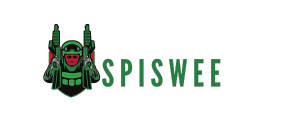Loans are a common way for individuals and businesses to access the funds they need for a variety of purposes, from purchasing a home to starting a business. However, with many different types of loans available, choosing the right one can be confusing. Understanding the options and their respective benefits and drawbacks is essential in making the best decision for your financial situation. Let’s break down the different types of loans available and how to choose the right one based on your needs.
1. Personal Loans
What It Is: A personal loan is typically unsecured, meaning it doesn’t require collateral. It’s a flexible loan that can be used for various purposes, such as consolidating debt, making a large purchase, or covering unexpected expenses.
When to Choose It:
- You need funds for a personal or one-time expense.
- You don’t want to risk an asset (such as your home or car) as collateral.
- You have good to excellent credit, which may help you secure a lower interest rate.
Pros:
- Quick approval process.
- No collateral required.
- Fixed interest rates and payment terms.
Cons:
- Higher interest rates compared to secured loans (e.g., mortgages or car loans).
- May require good credit to qualify for the best terms.
2. Mortgage Loans
What It Is: A mortgage loan is a secured loan specifically for purchasing real estate. The property you purchase serves as collateral for the loan, meaning the lender can seize it if you fail to repay the loan.
When to Choose It:
- You’re looking to purchase a home, condo, or investment property.
- You want long-term financing with lower interest rates.
- You’re comfortable with committing your property as collateral.
Pros:
- Lower interest rates compared to unsecured loans.
- Flexible loan terms, typically ranging from 15 to 30 years.
- Potential tax benefits (e.g., mortgage interest deductions).
Cons:
- Requires a down payment (usually 10%-20% of the home’s price).
- Risk of foreclosure if you fail to make payments.
- The approval process can be lengthy and complex.
3. Auto Loans
What It Is: An auto loan is a secured loan that helps finance the purchase of a vehicle. The car you buy acts as collateral for the loan, and if you fail to repay, the lender can repossess the vehicle.
When to Choose It:
- You need financing for purchasing a new or used car.
- You want to spread the cost of the vehicle over several years.
- You’re comfortable using the car as collateral.
Pros:
- Typically lower interest rates compared to unsecured personal loans.
- Flexible repayment terms (typically 3-7 years).
- Fast approval and funding.
Cons:
- Requires the car as collateral, meaning you risk losing it if you fail to repay.
- The loan term may be longer than the vehicle’s useful life, leading to higher costs over time.
- May require a down payment.
4. Student Loans
What It Is: Student loans are designed to help cover the cost of higher education, such as tuition, books, and living expenses. They can be federal or private loans, with different interest rates, repayment terms, and eligibility criteria.
When to Choose It:
- You need financing for education-related expenses (tuition, fees, books, and living costs).
- You qualify for federal student loans, which typically offer better terms than private loans.
- You are a student or parent of a student.
Pros:
- Federal student loans offer lower interest rates and more flexible repayment options.
- Many federal loans offer deferment options (e.g., while you’re still in school or during financial hardship).
- No collateral required.
Cons:
- Student loan debt can be significant and take years to pay off.
- Private loans often have higher interest rates than federal loans.
- Some loans may begin accruing interest while you’re still in school.
5. Home Equity Loans (HELOCs)
What It Is: A home equity loan or home equity line of credit (HELOC) allows you to borrow money using the equity in your home as collateral. A home equity loan provides a lump sum, while a HELOC works like a credit card with a revolving line of credit.
When to Choose It:
- You need funds for home renovations, debt consolidation, or other significant expenses.
- You have substantial equity in your home.
- You are comfortable with using your home as collateral.
Pros:
- Lower interest rates compared to unsecured loans.
- Flexible borrowing options (lump sum vs. revolving credit).
- Potential tax benefits for interest paid on the loan.
Cons:
- Your home is at risk if you fail to repay.
- Fees and closing costs may apply.
- May require substantial home equity to qualify for a loan.
6. Credit Cards
What It Is: A credit card is an unsecured line of credit that allows you to borrow money up to a pre-approved limit. It is best for small, short-term borrowing.
When to Choose It:
- You need short-term financing for smaller purchases or everyday expenses.
- You can pay off the balance in full before interest accrues.
- You want flexibility in spending.
Pros:
- Convenient and easy to access.
- Rewards and benefits (cashback, points, travel miles).
- Flexible repayment terms, with a minimum payment due each month.
Cons:
- High-interest rates if balances are carried over.
- Risk of accumulating debt if not managed properly.
- Fees (e.g., late payment, over-limit charges) may apply.
7. Business Loans
What It Is: A business loan is a loan provided to entrepreneurs or businesses to fund operations, expansion, or capital expenses. These loans can be secured or unsecured and come in various forms, such as term loans, SBA loans, or lines of credit.
When to Choose It:
- You’re looking to fund your business’s growth or operations.
- You need capital to purchase equipment or expand your product offerings.
- You want a flexible loan option that suits your business’s needs.
Pros:
- Can provide significant capital for business operations.
- May have lower interest rates (especially with SBA loans).
- Potential to access larger loan amounts.
Cons:
- May require a solid business plan and collateral.
- Often involves a lengthy approval process.
- Can be difficult to qualify for without a strong credit history or business track record.
8. Payday Loans
What It Is: A payday loan is a short-term, high-interest loan typically due by your next payday. These loans are often small amounts meant to cover urgent, short-term cash flow issues.
When to Choose It:
- You need emergency funds and don’t have access to other forms of credit.
- You can repay the loan quickly, typically within two weeks.
Pros:
- Fast and easy access to cash.
- Minimal requirements (no credit check in some cases).
Cons:
- Extremely high-interest rates (can exceed 400% annually).
- Risk of falling into a cycle of debt if not repaid on time.
- Fees and penalties for late payments.
How to Choose the Right Loan
Choosing the right loan depends on several factors, including your financial goals, creditworthiness, and ability to repay. Here are some tips for selecting the right type of loan:
- Assess Your Needs: Determine the purpose of the loan (e.g., buying a home, paying for education, or consolidating debt) and how much you need to borrow.
- Understand the Terms: Review the interest rates, repayment periods, and any fees associated with the loan. Consider how long it will take to repay and how much the total cost will be.
- Evaluate Your Credit: Your credit score will play a major role in the types of loans you qualify for and the interest rates you receive. If your credit is poor, consider secured loans or loans that don’t require a credit check.
- Consider Collateral: Secured loans (like mortgages or auto loans) usually have lower interest rates but come with the risk of losing your collateral (e.g., your home or car). If you don’t want to risk assets, unsecured loans may be a better choice.
- Compare Lenders: Shop around for the best loan terms. Different lenders (banks, credit unions, online lenders) may offer different rates, terms, and fees.
- Plan for Repayment: Choose a loan that fits your budget and ability to repay. Consider the monthly payment and how it will impact your finances.
Conclusion
Understanding the different types of loans and their uses is essential in making informed financial decisions. By considering your needs, credit situation, and repayment ability, you can choose the loan that best suits your goals and ensures you can manage the debt effectively. Whether you’re funding a home purchase, expanding a business, or handling an emergency, the right loan can help you achieve your financial objectives without compromising your long-term financial health.

